 In this story by Adolfo Bioy Casares, childhood sweethearts grow up believing their “souls are united”. From the man’s perspective: Life was a pleasant habit which led us to look upon our eventual marriage as something natural and certain. He takes the relationship for granted, doesn’t express his love, and she marries someone else. Shattered, he accepts a two-year scholarship to study abroad. On his return, she visits his apartment and falls into his arms. When he goes looking for her the next day, a friend has shocking news. Themes include childhood love, complacency, jealousy, loss, memory, the supernatural. More…
In this story by Adolfo Bioy Casares, childhood sweethearts grow up believing their “souls are united”. From the man’s perspective: Life was a pleasant habit which led us to look upon our eventual marriage as something natural and certain. He takes the relationship for granted, doesn’t express his love, and she marries someone else. Shattered, he accepts a two-year scholarship to study abroad. On his return, she visits his apartment and falls into his arms. When he goes looking for her the next day, a friend has shocking news. Themes include childhood love, complacency, jealousy, loss, memory, the supernatural. More…
Archives
I’m Your Horse in the Night
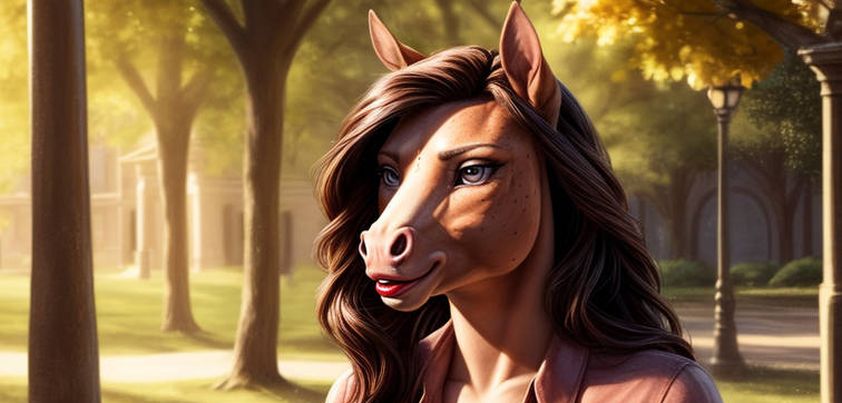 In this story by Luisa Valenzuela a woman describes a visit by her lover, an Argentinian resistance leader, after a mysterious six months’ absence. After a night of passionate lovemaking, when she wakes up he is gone. Arrested and tortured to divulge his whereabouts, she copes by telling herself the visit didn’t happen. She is so successful that by the end of the story she (and readers) are left wondering whether the visitor was real, a dream, or her dead lover’s spirit. Themes include love, sexuality, gender roles, oppression, paranoia, violence, memory and imagination, the supernatural. More…
In this story by Luisa Valenzuela a woman describes a visit by her lover, an Argentinian resistance leader, after a mysterious six months’ absence. After a night of passionate lovemaking, when she wakes up he is gone. Arrested and tortured to divulge his whereabouts, she copes by telling herself the visit didn’t happen. She is so successful that by the end of the story she (and readers) are left wondering whether the visitor was real, a dream, or her dead lover’s spirit. Themes include love, sexuality, gender roles, oppression, paranoia, violence, memory and imagination, the supernatural. More…
The Switchman
 In this story by Juan José Arreola, a man waiting for a train in Mexico is interrupted by a retired switchman who tells him that has little chance of getting to his destination. After outlining a long list of problems with the railway system and the hazards of using it, he “dissolves” at the sound of an approaching train whistle. The story has been variously labeled a satire of the Mexican railway system/government, and an existential horror story about the inability to exercise free will in a world governed by chance. Themes include absurdity, existentialism, corruption, determination, hope. More…
In this story by Juan José Arreola, a man waiting for a train in Mexico is interrupted by a retired switchman who tells him that has little chance of getting to his destination. After outlining a long list of problems with the railway system and the hazards of using it, he “dissolves” at the sound of an approaching train whistle. The story has been variously labeled a satire of the Mexican railway system/government, and an existential horror story about the inability to exercise free will in a world governed by chance. Themes include absurdity, existentialism, corruption, determination, hope. More…
The Ghost of Michael Jackson
 This story by Ngugi wa Thiong’o satirizes attempts to instill Western & Eastern religious values in post-colonial Kenya. In the process, it lampoons some widely documented scandals of the modern church and the growth of contemporary megachurches with fallen celebrity pastors. A charismatic parish priest flees when a psychic boy reveals some of his vices. His loving flock are so upset by the disappearance that they overlook the boy’s revelations and are overjoyed when the priest mysteriously reappears in the form of a resurrected Michael Jackson. Themes: childhood innocence, the supernatural, superstition, culture clash, religious rivalry, zealotry, hypocrisy. More…
This story by Ngugi wa Thiong’o satirizes attempts to instill Western & Eastern religious values in post-colonial Kenya. In the process, it lampoons some widely documented scandals of the modern church and the growth of contemporary megachurches with fallen celebrity pastors. A charismatic parish priest flees when a psychic boy reveals some of his vices. His loving flock are so upset by the disappearance that they overlook the boy’s revelations and are overjoyed when the priest mysteriously reappears in the form of a resurrected Michael Jackson. Themes: childhood innocence, the supernatural, superstition, culture clash, religious rivalry, zealotry, hypocrisy. More…
The Aleph
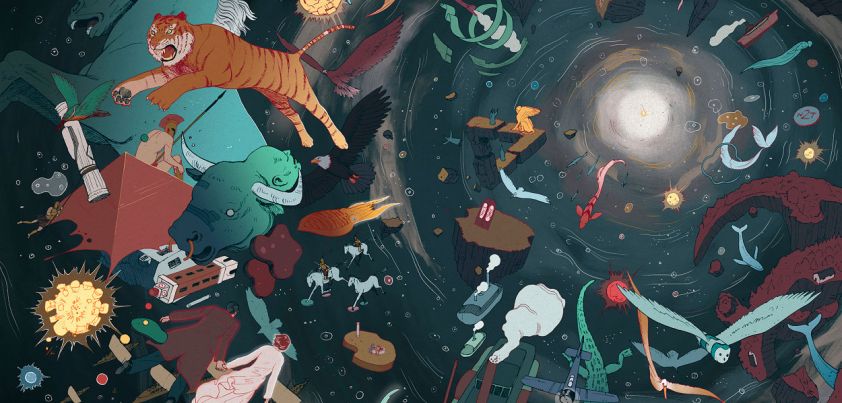 In a commentary on this story, Jorge Borges explained: “What eternity is to time, the Aleph is to space”. In the story, a fictionalized version of Borges maintains contact with the family of a deceased woman he once loved. He learns that her cousin, an “untalented” poet, is using an Aleph, a point in space that contains all other points, to write an epic poem versifying every place on Earth. Major Themes: the fleeting nature of memory, the limitations of language in describing infinity. Other themes: unrequited love, death, grief, the subjective nature of art. More…
In a commentary on this story, Jorge Borges explained: “What eternity is to time, the Aleph is to space”. In the story, a fictionalized version of Borges maintains contact with the family of a deceased woman he once loved. He learns that her cousin, an “untalented” poet, is using an Aleph, a point in space that contains all other points, to write an epic poem versifying every place on Earth. Major Themes: the fleeting nature of memory, the limitations of language in describing infinity. Other themes: unrequited love, death, grief, the subjective nature of art. More…
Four O’clock
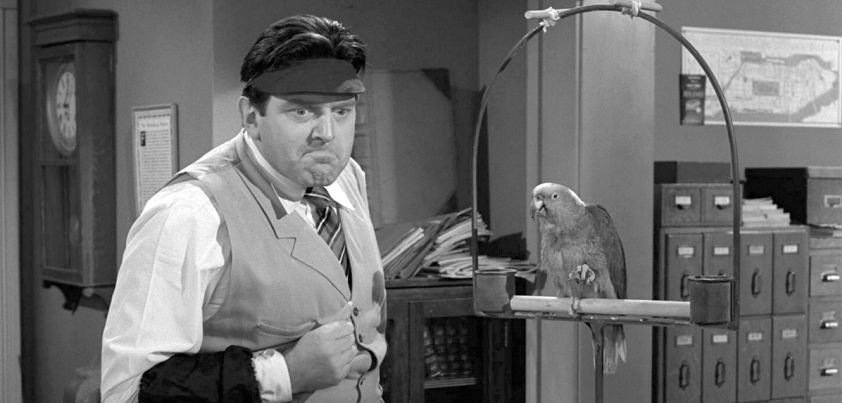 This is the one notable short story from award-winning journalist Price Day. A seemingly ordinary man has been given a series of “special powers” that could benefit mankind. He is too slow in using the first two (the power to ground war planes and prevent road accidents), and is determined not to do the same with the third: the ability to change evil people all over the world in a way that makes them easily identifiable. When he tries to do this, things don’t go according to plan. Themes: moral superiority, tempting fate (be careful what you wish for!), karma. More…
This is the one notable short story from award-winning journalist Price Day. A seemingly ordinary man has been given a series of “special powers” that could benefit mankind. He is too slow in using the first two (the power to ground war planes and prevent road accidents), and is determined not to do the same with the third: the ability to change evil people all over the world in a way that makes them easily identifiable. When he tries to do this, things don’t go according to plan. Themes: moral superiority, tempting fate (be careful what you wish for!), karma. More…
The Encyclopedia of the Dead
 The legendary Encyclopedia in this story by Danilo Kiš records minute details of the lives of all people not famous enough to have a published biography. Readers encounter two sets of themes: those related to the book, and those arising from the protagonist’s dream about her father’s entry in the book. For the book we have egalitarianism (equality in eternity), individuality (each person is a star unto himself) and singularity (nothing in the history of mankind is ever repeated). For the protagonist’s dream, which ends with a supernatural twist, we have memories, love, aging, and coming to terms with death. More…
The legendary Encyclopedia in this story by Danilo Kiš records minute details of the lives of all people not famous enough to have a published biography. Readers encounter two sets of themes: those related to the book, and those arising from the protagonist’s dream about her father’s entry in the book. For the book we have egalitarianism (equality in eternity), individuality (each person is a star unto himself) and singularity (nothing in the history of mankind is ever repeated). For the protagonist’s dream, which ends with a supernatural twist, we have memories, love, aging, and coming to terms with death. More…
Seventh Day of the Seventh Moon
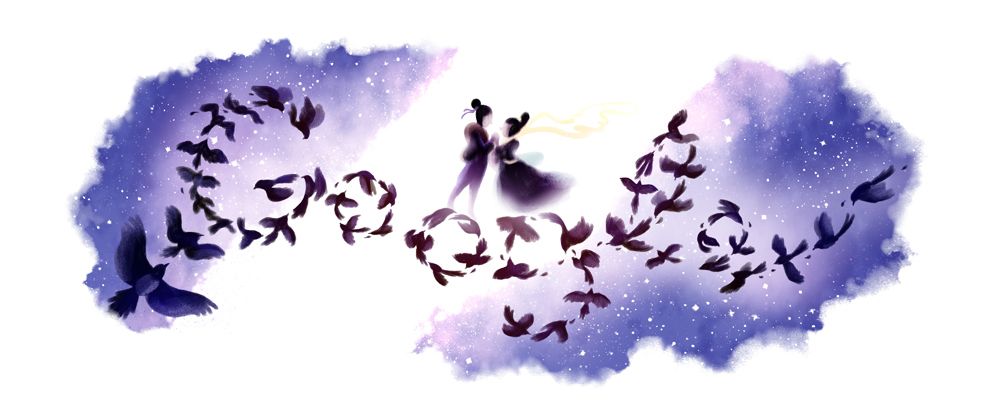 In this bittersweet story by Ken Liu, the myth behind China’s annual Qixi Festival comes to life to help two young women in love face a forced separation. On the eve before parting, flocks of magpies magically appear to transport them to the ‘bridge’ upon which the Qixi lovers meet once a year. The message they receive from the mythical couple is that if one loves someone and moves on, their love remains true no matter how many times they fall in love with others. Themes include culture, tradition, change (Westernization/commercialism), love, separation, moving on, sexuality, the supernatural. More…
In this bittersweet story by Ken Liu, the myth behind China’s annual Qixi Festival comes to life to help two young women in love face a forced separation. On the eve before parting, flocks of magpies magically appear to transport them to the ‘bridge’ upon which the Qixi lovers meet once a year. The message they receive from the mythical couple is that if one loves someone and moves on, their love remains true no matter how many times they fall in love with others. Themes include culture, tradition, change (Westernization/commercialism), love, separation, moving on, sexuality, the supernatural. More…
Titanic Survivors Found in Bermuda Triangle
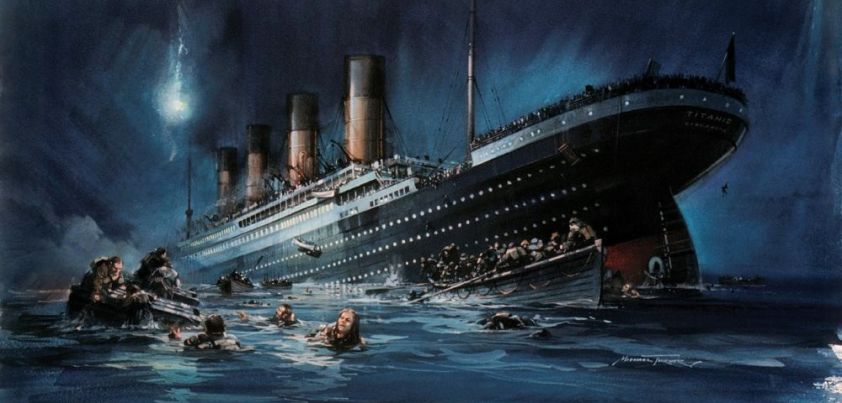 Robert Olen Butler’s Titanic survivor is an early 1900s women’s suffrage campaigner. After “waking up” in a lifeboat off the Miami coast in the 1990s, she realizes there is no place for her in the modern world. Women have been emancipated, and her family and friends are all dead. The only man she has ever had strong feelings for (other than her father) went down with the ship. Having lacked the courage to express her feelings at the time, she decides to find him again. Themes: change, father-daughter relationships, women’s rights, finding purpose and meaning in life, sexuality, misandry, love. More…
Robert Olen Butler’s Titanic survivor is an early 1900s women’s suffrage campaigner. After “waking up” in a lifeboat off the Miami coast in the 1990s, she realizes there is no place for her in the modern world. Women have been emancipated, and her family and friends are all dead. The only man she has ever had strong feelings for (other than her father) went down with the ship. Having lacked the courage to express her feelings at the time, she decides to find him again. Themes: change, father-daughter relationships, women’s rights, finding purpose and meaning in life, sexuality, misandry, love. More…
A Shinagawa Monkey / Confessions of a Shinagawa Monkey
 Last year (2020) Haruki Murakami released Confessions of a Shinagawa Monkey, a sequel to his 2006 story, A Shinagawa Monkey. Both deal with a talking monkey who steals items showing the names of women to whom he is attracted. By concentrating on these, he absorbs aspects of the women’s identity. Although this satisfies the Monkey’s desires towards the women, it causes them to forget their names. The monkey is a symbol for all the lonely, often overlooked people in society whose circumstances make it difficult to find love. Other themes: envy; suicide; confronting and sharing concerns; reaching out for help. More…
Last year (2020) Haruki Murakami released Confessions of a Shinagawa Monkey, a sequel to his 2006 story, A Shinagawa Monkey. Both deal with a talking monkey who steals items showing the names of women to whom he is attracted. By concentrating on these, he absorbs aspects of the women’s identity. Although this satisfies the Monkey’s desires towards the women, it causes them to forget their names. The monkey is a symbol for all the lonely, often overlooked people in society whose circumstances make it difficult to find love. Other themes: envy; suicide; confronting and sharing concerns; reaching out for help. More…
The Whimper of Whipped Dogs
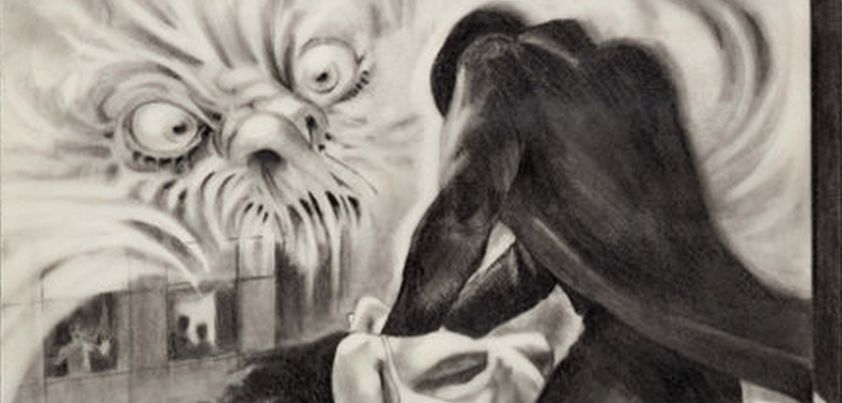 This horror story from Harlan Ellison uses magical realism to explain a crime: the 1964 murder of Kitty Genovese. Newspapers at the time (incorrectly) reported that 38 people, none of whom did anything to help, witnessed her stabbing. Here, a witness to a particularly brutal murder senses an evil presence. She later learns that it was a form of black mass, and joins the demonic cult as a means of survival. Themes include negative aspects of city life (competitive pressure, lack of connection, loneliness), behavioral effects of city life (depression, insensitivity, anger, rudeness, aggression, violence), supernatural (demonic) forces, and cultism. More…
This horror story from Harlan Ellison uses magical realism to explain a crime: the 1964 murder of Kitty Genovese. Newspapers at the time (incorrectly) reported that 38 people, none of whom did anything to help, witnessed her stabbing. Here, a witness to a particularly brutal murder senses an evil presence. She later learns that it was a form of black mass, and joins the demonic cult as a means of survival. Themes include negative aspects of city life (competitive pressure, lack of connection, loneliness), behavioral effects of city life (depression, insensitivity, anger, rudeness, aggression, violence), supernatural (demonic) forces, and cultism. More…
The Other
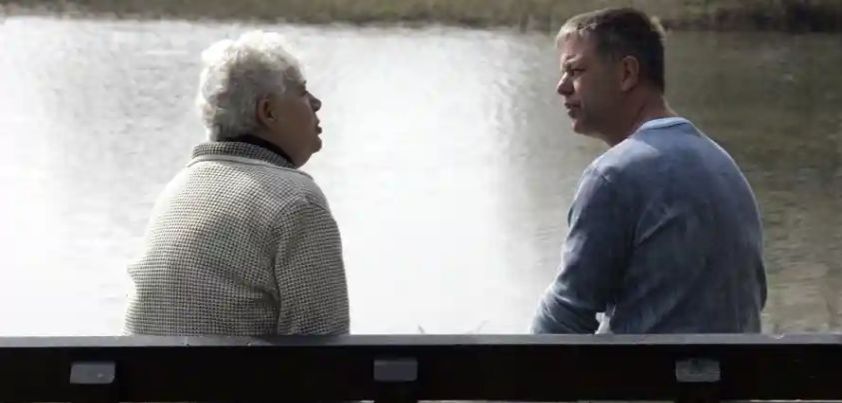 In this story by Jorge Borges, a younger man sits beside an aging teacher sitting on a riverside bench. As they talk, the teacher realizes that the younger man is himself at an earlier age. An ‘impossible’ date on an American banknote convinces the skeptical young man this is true. The teacher concludes that while the meeting was real and he definitely took part in it, the younger man wasn’t really there… he was dreaming the encounter! This begs the question, Could it have been the other way around? Themes include human existence, time, memory, dreams, old age, relativism. More…
In this story by Jorge Borges, a younger man sits beside an aging teacher sitting on a riverside bench. As they talk, the teacher realizes that the younger man is himself at an earlier age. An ‘impossible’ date on an American banknote convinces the skeptical young man this is true. The teacher concludes that while the meeting was real and he definitely took part in it, the younger man wasn’t really there… he was dreaming the encounter! This begs the question, Could it have been the other way around? Themes include human existence, time, memory, dreams, old age, relativism. More…
The Continuity of Parks
 Julio Cortázar‘s The Continuity of Parks is unusual in that it is a “story within a story” in which the two stories come together. The title stems from the fact that part of the setting of both stories is the same park at the same time. A tired businessman relaxes with a book. He becomes absorbed in the story (a murder mystery), unaware that the “hero” and “heroine” featured in the book are nearby preparing for the murder he is reading about, and that he is the intended victim! Themes include escape, betrayal, murder, the continuity between fiction and reality. More…
Julio Cortázar‘s The Continuity of Parks is unusual in that it is a “story within a story” in which the two stories come together. The title stems from the fact that part of the setting of both stories is the same park at the same time. A tired businessman relaxes with a book. He becomes absorbed in the story (a murder mystery), unaware that the “hero” and “heroine” featured in the book are nearby preparing for the murder he is reading about, and that he is the intended victim! Themes include escape, betrayal, murder, the continuity between fiction and reality. More…
The Goose Father
 In this story by Krys Lee, loneliness drives a South Korean gireogi appa (goose father) to take in a tenant after six months’ living alone. The tenant, an enigmatic young man half the landlord’s age, arrives on his doorstep with a goose he believes to be his reincarnated mother. As the mismatched pair get to know each other, sexual tension builds between them. Something unexpected occurs when the landlord finally comes to terms with his sexual inclinations and is about to express his feelings by kissing the younger man. Themes include family, loneliness, sexuality, love, betrayal, guilt, forgiveness, the supernatural. More…
In this story by Krys Lee, loneliness drives a South Korean gireogi appa (goose father) to take in a tenant after six months’ living alone. The tenant, an enigmatic young man half the landlord’s age, arrives on his doorstep with a goose he believes to be his reincarnated mother. As the mismatched pair get to know each other, sexual tension builds between them. Something unexpected occurs when the landlord finally comes to terms with his sexual inclinations and is about to express his feelings by kissing the younger man. Themes include family, loneliness, sexuality, love, betrayal, guilt, forgiveness, the supernatural. More…
All at One Point
Some time ago we featured Distance of the Moon, the first story in Italo Calvino’s Cosmicomics collection. In this, the fourth story, we travel back to before the beginning of time. Everything (and everyone) in the universe existed in a single point in space. Things were rather crowded and people had no chance to move about and meet others. However, everyone knew and loved Mrs. Ph(i)Nk_0, whose wish for enough room to make noodles caused a burst of positive energy that resulted in the “big bang” and universe as we know it today. Theme: the power of selflessness and love. More…
The Direction of the Road
 Only an author as creative as Ursula Le Guin could conceive a story where the protagonist is a ‘murderous’ roadside oak tree. A major theme is change. As the road develops from a bridle trail to a tarred highway, the tree laments differences in the environment (birds are fewer, and the wind’s foul) and human behavior, comparing modern passers-by to beetles always rushing about and never looking up. Another theme is perspective. The tree cannot move and has no concept of life after death. To make sense of the world, it comes up with alternative interpretations of relativity and eternity. More…
Only an author as creative as Ursula Le Guin could conceive a story where the protagonist is a ‘murderous’ roadside oak tree. A major theme is change. As the road develops from a bridle trail to a tarred highway, the tree laments differences in the environment (birds are fewer, and the wind’s foul) and human behavior, comparing modern passers-by to beetles always rushing about and never looking up. Another theme is perspective. The tree cannot move and has no concept of life after death. To make sense of the world, it comes up with alternative interpretations of relativity and eternity. More…
Who Will Greet You At Home
 In this surreal horror story from Lesley Nneka Arimah, children are created in the form of craft dolls by their mother, blessed by their grandmother or an elderly substitute, and nurtured for a year until they “become flesh”. In the interim they feed, move and act like babies, but in their doll form. The dolls can be made from any material (straw, sticks, clay, etc.) that is strong enough to last a year. But there are rules. When Ogechi, the impoverished protagonist desperate to have a child breaks one, bad things happen. Themes: magic, poverty, exploitation, isolation, obsession, motherhood. More…
In this surreal horror story from Lesley Nneka Arimah, children are created in the form of craft dolls by their mother, blessed by their grandmother or an elderly substitute, and nurtured for a year until they “become flesh”. In the interim they feed, move and act like babies, but in their doll form. The dolls can be made from any material (straw, sticks, clay, etc.) that is strong enough to last a year. But there are rules. When Ogechi, the impoverished protagonist desperate to have a child breaks one, bad things happen. Themes: magic, poverty, exploitation, isolation, obsession, motherhood. More…
The Paper Menagerie
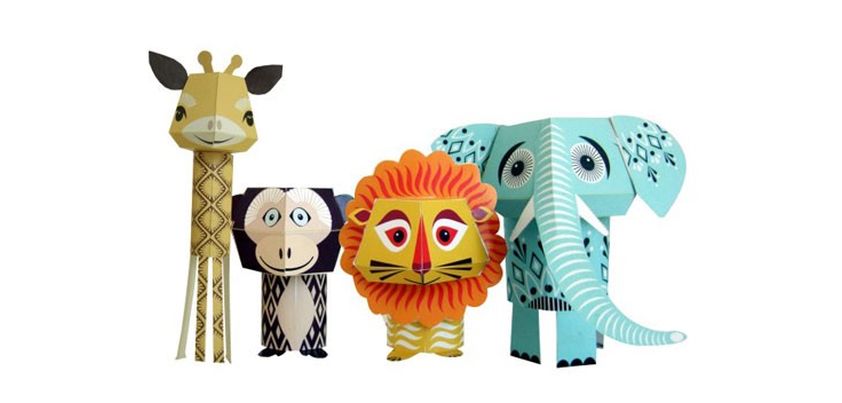 The central message of this poignant story from Ken Liu is in these lines: You know what the Chinese think is the saddest feeling in the world? It’s for a child to finally grow the desire to take care of his parents, only to realize that they were long gone. An American high schooler rejects his heritage and distances himself from his poorly educated, non-English speaking mother. After her death, he finds something that changes his outlook and brings back the magical world she had created for him as a child. Themes: struggle, cultural assimilation, identity, resentment, motherly love, imagination. More…
The central message of this poignant story from Ken Liu is in these lines: You know what the Chinese think is the saddest feeling in the world? It’s for a child to finally grow the desire to take care of his parents, only to realize that they were long gone. An American high schooler rejects his heritage and distances himself from his poorly educated, non-English speaking mother. After her death, he finds something that changes his outlook and brings back the magical world she had created for him as a child. Themes: struggle, cultural assimilation, identity, resentment, motherly love, imagination. More…
The Night Face Up
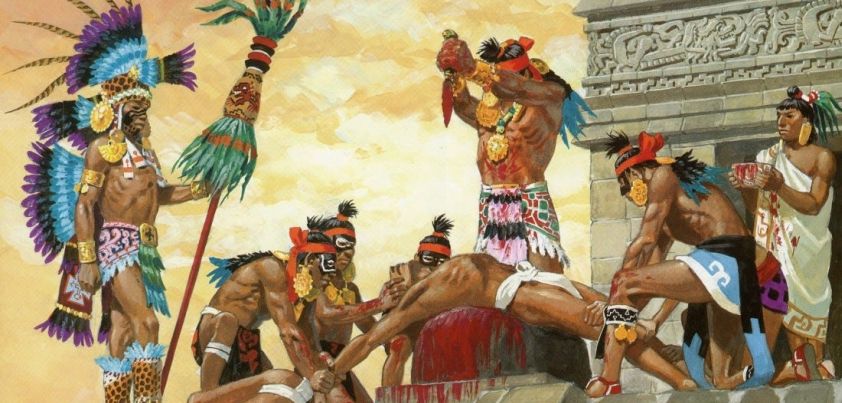 In this story by Julio Cortázar, a man hospitalized after a motorcycle accident drifts in and out between the “present” and a “dream” in which he is a member of an ancient tribe being hunted by Aztec warriors for sacrifice. As he struggles to stay awake in his hospital ward, his dream-self is captured, imprisoned, and carried up the temple steps for execution. At the moment of death, he recalls a dream about riding through an astonishing city on an enormous metal insect that whirred away between his legs. Themes include time and space (parallel worlds), existence, dreams vs. reality. More…
In this story by Julio Cortázar, a man hospitalized after a motorcycle accident drifts in and out between the “present” and a “dream” in which he is a member of an ancient tribe being hunted by Aztec warriors for sacrifice. As he struggles to stay awake in his hospital ward, his dream-self is captured, imprisoned, and carried up the temple steps for execution. At the moment of death, he recalls a dream about riding through an astonishing city on an enormous metal insect that whirred away between his legs. Themes include time and space (parallel worlds), existence, dreams vs. reality. More…
The Book of Sand
 This story by Jorge Borges deals with one of the author’s common themes… the infinite. In this case, a book lover exchanges a rare edition of the bible for a book that can’t be understood. It is in a strange language and has an endless number of randomly changing pages. He becomes obsessed with discovering the book’s secrets and, when he fails, concludes that it is so “monstrous” that it should be hidden away somewhere it will never be found. Other themes include spirituality, the power of books, obsession (the need to understand), fear. More…
This story by Jorge Borges deals with one of the author’s common themes… the infinite. In this case, a book lover exchanges a rare edition of the bible for a book that can’t be understood. It is in a strange language and has an endless number of randomly changing pages. He becomes obsessed with discovering the book’s secrets and, when he fails, concludes that it is so “monstrous” that it should be hidden away somewhere it will never be found. Other themes include spirituality, the power of books, obsession (the need to understand), fear. More…